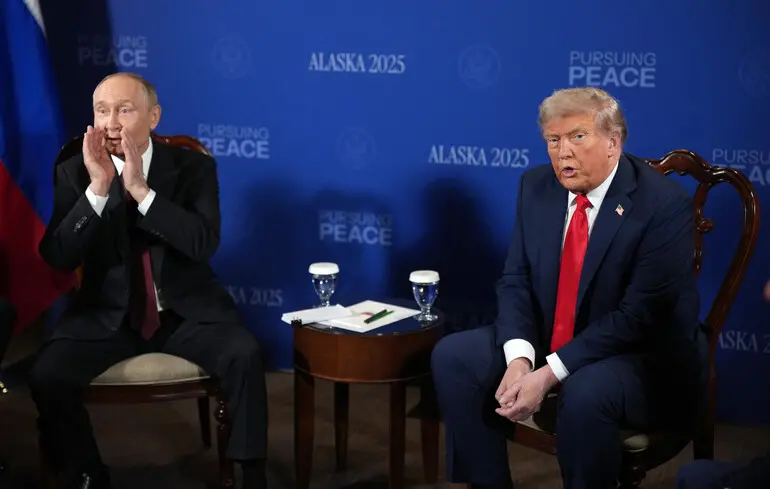US prepares to impose sweeping sanctions against Russian oil giants if summit with Putin fails

Just days before the planned meeting between U.S.
President Donald Trump and Russian leader Vladimir Putin in Alaska, American authorities are considering the implementation of strict economic restrictions targeting Russia’s major oil corporations — state-owned “Rosneft” and private giant “Lukoil.” According to Bloomberg, if the diplomatic talks do not yield the desired results and the issue of ending the Ukraine war remains unresolved, Washington intends to take measures aimed at reducing the Kremlin’s energy profits and increasing economic pressure on Moscow.Sources reveal that these measures could involve restrictions designed to cut these companies’ revenues and tighten the economic squeeze on Russia.
At the same time, U.S.
policymakers are mindful of the potential impact on global oil prices, striving to limit any adverse effects.
Planned actions include additional restrictions on the so-called “shadow fleet” — Russian tankers involved in oil transportation and transshipment — as well as the introduction of tariffs on countries purchasing Russian oil, such as China.Sources clarify that all steps will be implemented gradually and with caution to avoid causing sharp fluctuations in the oil market.
Trump reportedly prefers tariffs over sanctions, considering them more effective tools for applying pressure.
The format of the meeting has also been altered to “three on three” instead of the traditional one-on-one talks, a change explained by CNN analysts.Experts estimate that roughly half of Russia’s crude oil exports — about 2.2 million barrels per day — are supplied by “Rosneft,” headed by Ihar Sechin, and “Lukoil.” These companies play a crucial role in Moscow’s export economy.
Analysts warn that amid forecasts of a record surplus in the global oil market by 2026, as projected by the International Energy Agency, such restrictions may allow Moscow to reduce supplies without significant price increases.
However, disruptions in Russian oil production will continue to pose geopolitical risks.In this context, U.S.
leaders are pinning hopes on reaching a diplomatic compromise, as the outcome of the summit could shape future energy and geopolitical strategies.
Meanwhile, media outlets and observers are conducting live coverage and analysis, highlighting the potential impact of these negotiations on international relations.

